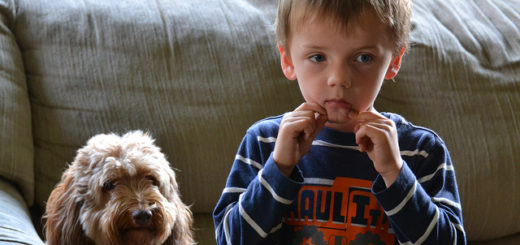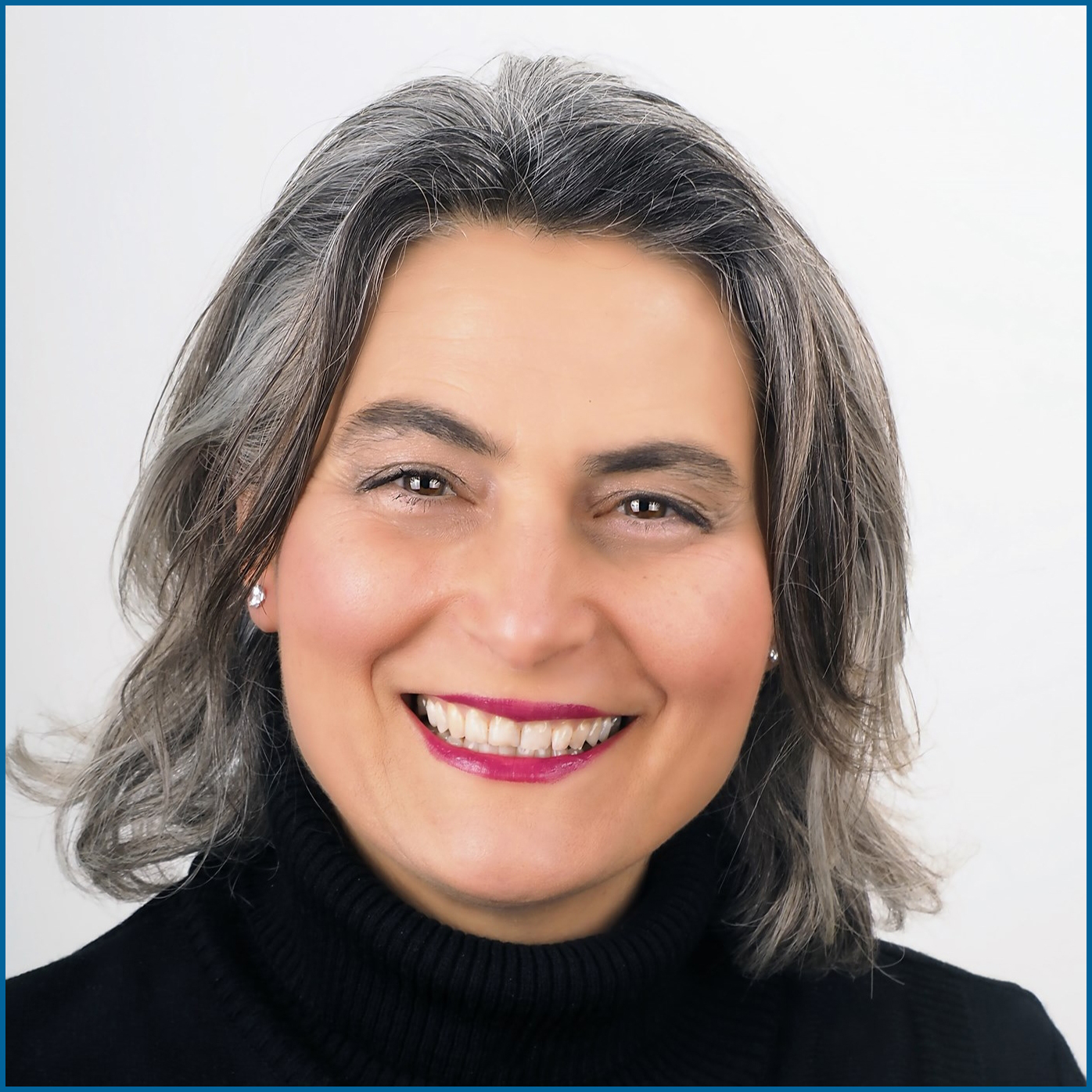How to Nurture Endurance in Adolescents – An Interview about Stress, Anger, and Violence in Adolescents
Mrs. Emine Çimen, English teacher in Bayır Anatolian High School, interviewed me for the school magazine. I often mention the importance of asking the right questions. Mrs. Çimen’s questions inform us of the agenda of a conscious teacher aiming at creating a difference in school life, while giving us the opportunity to contribute to the development of a solution-oriented discourse, involving resilience, skills among others. I share the interview with here, with my thanks to Mrs. Çimen. I hope you in turn will share it with those around you to contribute to the development of a constructive discourse including my suggestions about managing stress, anger, and violence.
1) Hello, Mrs. Bray. First of all, I would like to thank you for accepting the interview. Could you introduce yourself to us?
Let me start by saying I’m a mother. I have a 12-year-old daughter. When I was around the same age as your students, I felt down as I saw the problems around the earth and I avoided succumbing to depression by thinking about how I could make a difference. I later learned that this perspective constituted a method used to develop skills of “endurance in the face of hardship”.
At last, I decided the only way I could make a lasting difference was for me to be either a politician or a psychologist. Politics seemed too complicated and relentless to me then, as it still does, so I chose psychology. The endeavor to understand myself and those around me and to help them was a natural process for me.
I always advise young people to choose a field of work that they feel comes naturally to them, that is, a field that they love, they are passionate about. Because once they’ve made their choice, they will have to work hard and they can invest such effort consistently, happily and patiently only in a field that they can approach with passion, which appeals to them profoundly.
I worked very hard after I chose psychology. I first got my undergraduate degree in Boğaziçi University, then I received an MSc degree in Family Therapy from London University. I currently work mostly as an online family therapist from my home-office in Gökova and have clients from every continent on earth.
How we focus determines our life. For instance, I currently work with people, couples and families who experience problems but day by day my focus is shifting from “helping those who have problems” towards “paving the way for those who wish to make a meaningful contribution to the world.” Even though I may still be working with the same people on similar subjects, I feel that our horizon is broadening.
2) We know that you do volunteer work in schools. Can you tell us about these activities?
I have an international business but I believe strongly in improving one’s local community. This is why I prefer doing my shopping at the local markets and small neighborhood shops instead of great malls and department stores. I make a point of being there when a neighbor needs me.
Similarly, I’ve always been willing to share my learning and experience in every community I’ve ever been part of. I used to give seminars to parents, students and teachers in Turunç where I lived for over 10 years. I’ve been living in Gökova for over a year now, and I try to meet the needs and expectations of the parents, students and teachers in our school here, too.
The Conscious Parents Training Course, consisting of four modules, creates a difference in the parent-child relationship, while the Test Anxiety seminars help decrease young people’s anxiety levels significantly. These activities increase the participants’ skills of endurance.
The feedback I receive shows me the magnitude of the demand. Therefore I have new projects under way to allow a larger audience to access the courses. For instance, I plan to create an online platform where I can offer the courses to larger groups. When this is accomplished, the students in your school and their parents will also be able to participate free of charge.
3) The students in our school are between 14 and 18 years of age. What would you say are the general characteristics, and especially worries, of this age group?
To answer this question, let’s first go back and look at our own adolescence. Let’s think of the anxieties we had, of the questions we asked ourselves, our self-talk:
Who am I, how can I become who I want to be? How can I be popular among my friends? How can I be attractive to the opposite sex? I’m having difficulty in controlling my emotions when I’m with the person I find attractive, I hope I will not make a fool of myself! How can I make my family understand and accept my wishes and needs? What kind of future lies ahead for me? How can I best prepare for the future? How will the problems in the country and in the world affect me? What’s my purpose in life? I feel inadequate and unsuccessful. I have no confidence. I can’t do it! I don’t understand! No one understands me! I’m so alone. What if I get a bad mark? What if I fail? What if I do badly on the test? What if my friends make fun of me or exclude me?
Young people today have have the same questions in their mind as we did then, the difference being that we are in the communication age and therefore the new generation’s horizon is much broader. Young people are discovering themselves through their interactions with their surroundings and shaping their own world according to what they see on the adults’ world.
However, the system imposes more on today’s young people. Evaluations of achievement through tests based on rote learning may be too limiting to let them discover the horizons at their reach. Furthermore, when they fail to fit in with the system they may be exposed to negative lectures. They may be unable to protect themselves and fall prey to digital addictions. A resource which has many benefits to offer may turn into a source of harm.
Although the Aegean Region is abundant in all kinds of nutritious foods a young body and mind need to develop, youths often consume packaged, processed foods such as sodas, cookies, chips, or snacks that impair their health and restrict their potential.
In other words, young people need encouragement to be more vigilant about making good use of their resources. I believe we have to teach adolescents how to develop their skills of resilience, which can definitely be learned.
4) In our school, we run a project about violence and the perception of violence, aimed at creating awareness about all kinds of violence. Is there anything you would like to say to us on this subject?
Congratulations to you for launching such a project. Adolescence is a risky period concerning violent tendencies and being a victim to violence. We know that violent experiences adversely affect young people’s normal psychosocial development and health.
The starting point of violence is firstly one’s negative experiences about expressing their feelings and satisfying their needs; and secondly their inadequacy in conflict resolution. A violent home environment or some TV shows may also lead young people to adopt violence as a kind of viable behavior. People with developed endurance skills get in trouble with violence less frequently.
Humans fail to see what’s truly in their best interest, and helplessness gives way to violence. And violence unavoidably breeds more violence in turn. This is what lies at the bottom of all wars in the world.
There’s much that can be said on this and it would be unfair to try and fit it all in here. Maybe this interview will be a starting point for another, closer project in the future.
The violence in adolescents’ lives is shaped through the culture and spreads over a large area. The first kinds of violent experiences that come to mind are:
- Physical and relational violence among friends
- Bullying
- Cyber violence
- Sexual violence
- Abuse of children and animals
- Damaging the nature
- Violence toward objects and the surroundings
- Witnessing violence between the parents
- Witnessing violence in the media
5) Anger management is an important issue in adolescence. What’s your opinion on how to achieve it? What are the healthy ways of dealing with anger?
The ability to recognize and transform anger is indeed a very important life skill. Anger is a manifestation of our vital energy; it’s beneficial when used in a controlled manner, like gas which moves our car. Handled badly it can cause serious and permanent damage to us, our neighbors and our relationships.
Self-control is a skill that can be taught and learned. There are several methods that can be used, such as keeping a positive attitude, looking for ways to make a difference when faced with negative experiences, controlling, and wanting to control ourselves in small matters, making deals with ourselves and rewarding ourselves when achieving the deal’s goals, or using the adverse outcomes of lack of control as a source of motivation. Self-control is like a muscle; when you overuse it you can experience exhaustion, therefore if we need our controlling power in the evening, we’d better use it wisely earlier in the day.
It’s possible to observe the signs of anger before it peaks and to intervene in advance. I can think of other positive methods you can use: Painting a mental image of your anger, imagining your anger as a balloon that is deflating, leaving the place, counting to 100 before saying or doing anything, expressing your anger verbally (saying “I am angry”) instead of physically, approaching the situation as if it didn’t involve us but other people, and so on. Young people with developed resilience skills are better at anger management. I have articles on anger, which you can find on my website.
6) Test anxiety and inadequate studying efficiency are the foremost among the difficulties our students experience. What could you advise them on these matters?
Test anxiety and studying efficiency are two subjects that concern me. The system limits the students, the parents and the teachers all so much that you have to develop a critical stance and a balanced perspective and to create yourself a balanced life in order to keep healthy. You need to establish a strong connection between your long- and short-term goals.
Everyone seems to focus all their efforts toward gaining acceptance to a good school, and the way to do that is believed to be to study hard, to solve hundreds of questions, and to forgo having a normal childhood and youth. Yet, young people who live like that risk growing up into automatons who have no experience in anything but taking tests, who take information in and pass it out without questioning it, even if they manage to get themselves into a good university.
In order to allow them to get to know themselves and their bodies, and to gain experience in a variety of life skills, we need to emphasize cooking, cleaning, mending clothes, changing light bulbs, or fixing leaky faucets at least as much as we emphasize exams. The remedy to test anxiety is to adopt a wider view. The problem arises from the inability of the teachers and parents to approach the tests this way and their judging a student’s personality and skills based on test results. This is why any individual with common sense is a valuable resource for the young people around them.
I prefer using the expression “learning to learn” instead of “studying efficiency”. You can forget what you’ve learned, but the learning skills you’ve acquired remain with you, and those skills are in fact what will be of most use to you in the long term. Efficiency becomes possible as part of a balanced life, including a good diet, adequate sleep and exercise, and sufficient spare time for entertainment.
7) Stress affects children and teenagers as well as everybody else. What measures do you think we should take to manage stress effectively?
I feel we burden children and teenagers way more than we should. Factors that mitigate the effect of stress include exercising, thinking positively, and close relationships with friends. My answer to your question about anger management would also apply to stress management. And, of course, developing endurance skills allows us to counterbalance the negative effects of external circumstances on us.
8) The use of psychiatric medications such as antidepressants is growing increasingly widespread among high school students. What do you think of these drugs, used either under the supervision of a psychiatrist or upon the individual’s arbitrary decision? Might their use by children or teenagers lead to adverse outcomes in the future?
There is of course a group of individuals who would benefit from the use of these medications, and the decision in this matter lies with the physicians with the proper training. Taking medications without qualified advice constitutes a serious health threat. There are people who recommend each other medications, as if those were sweets. I believe this stems from ignorance about how dangerous medications could be.
I wouldn’t wish to overstep my mark by saying too much about medications. However, my personal bias is that medications need to be used for limited periods, and in conjunction with psychotherapy. The problems usually grow larger when we fail to adapt to a troublesome environment and lose our balance. These problems are in fact signals about us. Medication can stop us from perceiving those signals and acting accordingly, because it dulls and represses our senses.
Although I am not an expert about the side effects of medications, I know people who have suffered irreversible damage to their organs due to the use of a medication over a long period of time.
9) We are about to reach the end of our interview, is there anything you would like to add?
Yes, someone from our school asked me a question the other day: “Why are girls more successful than boys?” I looked into it, and saw that there is similar statistical evidence in other countries as well. The results obtained by researchers through experiments and questionnaires were quite surprising to me. They claim girls are more successful than boys because they are better in self control.
10) Mrs. Bray, thank you so much for your time. Before we wrap up, could you tell us how those who wish to contact you can do so?
I make a point of being accessible, I answer my calls personally, if I don’t, it’s because I’m actually in a session, and I will return your call as soon as I can. Melike, my assistant, sends the information about my work procedure to those who apply for the first time. My e-mail address is [email protected], and my mobile number 0 538 912 33 36. I work 4 days a week, I don’t hold sessions on Thursdays or weekends, but I try to answer my e-mail messages and phone calls on those days.
I publish a new article on my website www.irembray.com every week. I will also post this interview there, if it’s alright. When you subscribe to my list, I can send you weekly updates about my current works. And you can help shape what I’ll be writing about with your questions, there is no age limit there, either You can click here or visit my website to subscribe.
Thank you again for your time, and looking forward to seeing you again soon.
Thank you for giving me the opportunity to contribute. I hope our relationship, which has started with this interview, will develop further in the future.





